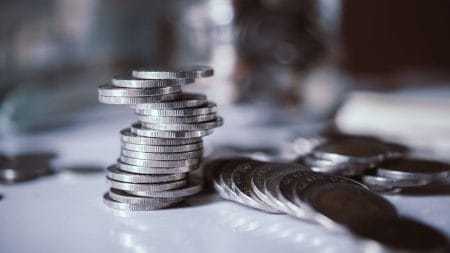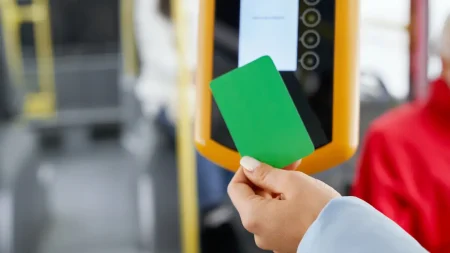The South African government recently announced a phased VAT increase—the first since 2018. Effective 1 May 2025, VAT will rise from 15% to 15.5%, with a further hike to 16% scheduled for April 2026. While the increase is framed as necessary to support public spending on education, healthcare, and infrastructure, it also raises concerns about the impact on household expenses, especially for groceries and other essential items.
As families across the country already grapple with a cost-of-living crisis, this VAT change brings renewed focus to the affordability of everyday goods. Here’s what consumers can expect, and how they can prepare.
Understanding VAT and How It Affects Groceries
VAT is an indirect tax levied on the consumption of goods and services. While it is paid by consumers, it is collected and remitted to the South African Revenue Service (SARS) by businesses. Unlike income tax, which is based on earnings, VAT is charged at the point of sale, regardless of income level—making it a regressive tax in nature.
Most standard grocery items carry VAT, but some essential goods are classified as zero-rated, meaning they are exempt to protect vulnerable consumers. The list of zero-rated items includes staples like brown bread, maize meal, milk, eggs, rice, dried beans, and certain fruits and vegetables.
The Direct Impact: Price Increases on Grocery Baskets
The VAT increase will be felt immediately in supermarket aisles. For example, if your monthly grocery basket currently costs R5,313.22 including VAT, the initial 0.5% increase will result in an additional R10.80 in VAT, bringing the total to R5,324.02. When the VAT rate reaches 16% in 2026, the added burden will be even greater.
This may seem marginal at first glance, but when compounded over time—and multiplied across millions of households—the effects are significant.
According to data from Pietermaritzburg Economic Justice & Dignity Group (PMBEJD), the cost of a basic nutritional food basket for low-income households already exceeds R5,300 as of early 2025. The VAT hike will add further pressure, especially for those living hand-to-mouth.
Broader Cost-of-Living Effects
The impact of VAT goes beyond groceries. Other essentials—such as electricity, transport, toiletries, school supplies, and cleaning products—are not zero-rated and will see similar price hikes.
Electricity: Already subject to annual tariff increases by Eskom, electricity costs will climb further with VAT added on top of adjusted tariffs.
Transport: Minibus taxi fares and bus services, although not directly affected by VAT in many cases, may rise due to fuel price increases that are indirectly influenced by VAT on fuel-related products and services.
Non-zero-rated foods: Prepared foods, canned goods, beverages, and dairy blends not classified as essentials will now cost more.
Taken together, these increases threaten to deepen food insecurity, especially in townships and rural areas where access to affordable, nutritious food is already limited.
Government Response and Mitigation Efforts
Recognising the risk to low-income households, Treasury has proposed several mitigation measures aimed at reducing the financial blow:
1. Expansion of Zero-Rated Items
In consultation with the South African Revenue Service (SARS) and various food industry stakeholders, the National Treasury has added new products to the zero-rated list. These include:
Canned vegetables
Certain dairy liquid blends
Organ meats such as liver and tripe
These additions are expected to help low-income consumers stretch their grocery budgets. However, critics argue that the list does not go far enough to address the full scope of everyday needs.
2. Adjustments to Social Grants
To offset the VAT burden, the government has promised above-inflation increases in social grants such as:
Old Age Grant
Child Support Grant
Disability Grant
While welcome, these increases may still fall short in matching the rapid pace of inflation, particularly in the food sector. According to Stats SA, food inflation was sitting above 7.5% year-on-year in early 2025—well above the grant adjustment margins in previous years.
Why VAT Hurts Poorer Households More
VAT is often described as a “silent burden” on the poor. Since it applies equally to all consumers, it consumes a larger percentage of income from poorer households compared to wealthier ones.
For example, a household earning R3,000 a month that spends 80% of its income on VAT-inclusive items will feel the pinch far more acutely than one earning R30,000. With limited access to savings or credit, many low-income families will be forced to make tough trade-offs—often sacrificing nutrition, transport, or healthcare to make ends meet.
Practical Steps for Consumers
While structural economic reforms are needed to address inequality, individual households can take proactive steps to lessen the impact of the VAT increase:
1. Prioritise Zero-Rated Goods
Familiarise yourself with the updated list of zero-rated foods and make them a core part of your grocery shopping. Opt for unprocessed basics over packaged or branded versions that attract full VAT.
2. Revisit Your Budget
Households should reassess their monthly budgets, anticipating price increases in food, utilities, and transport. Prioritising essential spending and cutting discretionary items may become necessary for many.
3. Track Social Grant Updates
If you or someone in your household relies on social grants, monitor announcements from the Department of Social Development for upcoming increases or policy changes.
4. Use Bulk Buying and Community Savings Groups
Stokvels, bulk buying co-operatives, and community food gardens are proven methods of stretching household resources. Collaborating with neighbours can improve access to lower prices.
Looking Ahead: Is the VAT Increase Justified?
The government defends the VAT increase as necessary to plug budget deficits and fund public services like health, policing, and education. Yet, civil society groups have expressed concern over the lack of progressive alternatives—such as taxing wealth, luxury goods, or high corporate profits.
Organisations like Black Sash and Section27 argue that economic justice demands a more equitable approach to taxation, where the burden does not fall disproportionately on the most vulnerable.
MOST READ: South Africa’s 2025 Budget: No Fuel Tax Hike, But VAT Increase Confirmed
The upcoming VAT increase will undoubtedly affect the price of groceries and essential household items. While the government has made efforts to soften the blow through expanded zero-rated items and increased social grants, these measures may not fully shield low-income South Africans from rising costs.
Consumers are urged to take practical steps now—by focusing on VAT-exempt products, adjusting budgets, and exploring community support networks—to navigate the financial challenges ahead.
As South Africa continues to grapple with inequality and unemployment, the need for inclusive economic policies that protect the most vulnerable has never been more urgent.










